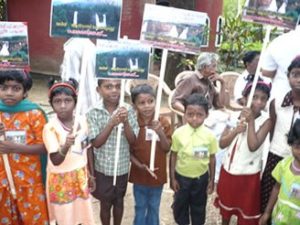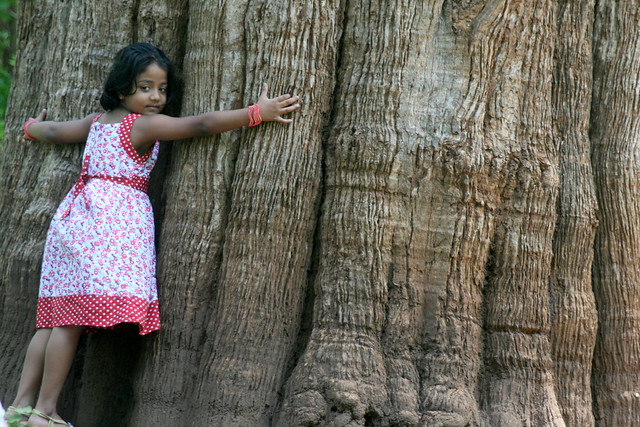Inspired by their success over the years in stopping the construction of a big hydroelectric project in Kerala, the Kadar have decided to contest the construction of another dam on a different river in the state. A post on an Indian environmental blog on October 20 provided some details of the latest attack by the state electricity development authority on the forest rights of the people. The Times of India (TOI), one of the nation’s leading newspapers, covered the story on November 18 and provided an update the next day describing some of the actions the Kadar and their supporters are taking to dramatize their opposition.

The long-delayed project, covered by many news stories over the years and so far fought to a stand-still, was proposed for the Chalakudy River above the famed Athirappilly waterfall. The more recent dam is now proposed for a river near the Kadar village of Anakkayam, which is located in the buffer zone of the Parambikulam Tiger Reserve (formerly known as the Parambikulam Wildlife Sanctuary).
The Kerala State Electricity Board, the agency that the Kadar have been challenging for years, has directed the clearing of eight hectares of primary forest in the ancestral lands of the local Kadar without bothering to discuss the project with them. The land involved in the proposed dam, called the Anakkayam Small Hydro Power Project, includes 625 massive, old-growth trees that would have to be sacrificed. The latest dam proposal would require the construction of a tunnel five kilometers long. The construction would destroy the habitat of the birds and mammals that inhabit the old-growth forest.

The Kadar in the area assert that India’s Forest Rights Act of 2006 (FRA) gives them the rights to the natural resources of the forest, the same claim they have made over the proposed project on the Chalakudy River. Their economy depends on sustainable gathering of non-timber forest resources and produce from the rivers.
The November 18 news story quoted Ajitha G., the secretary of the Community Forest Rights Coordination Sangham, a group established in 2015 to help the Kadar manage their non-timber products in the area they claim under the terms of the FRA. Ajitha said that the people gather from the forest produce such as thelli (black dammar), wild turmeric, wild ginger, and wild nutmeg. They also collect wild tubers such as Chandana Kizhangu and Chavali Kizhangu for food.
The TOI news story dated November 19 reported that the Kadar staged a standing protest on the 18th in which the tribal people, including women and children, stood about holding signs expressing their opposition to the dam proposal. Various environmental organizations in Kerala, including the Chalakudi River Protection Forum, also staged similar peaceful protests to express their support for the Kadar position.